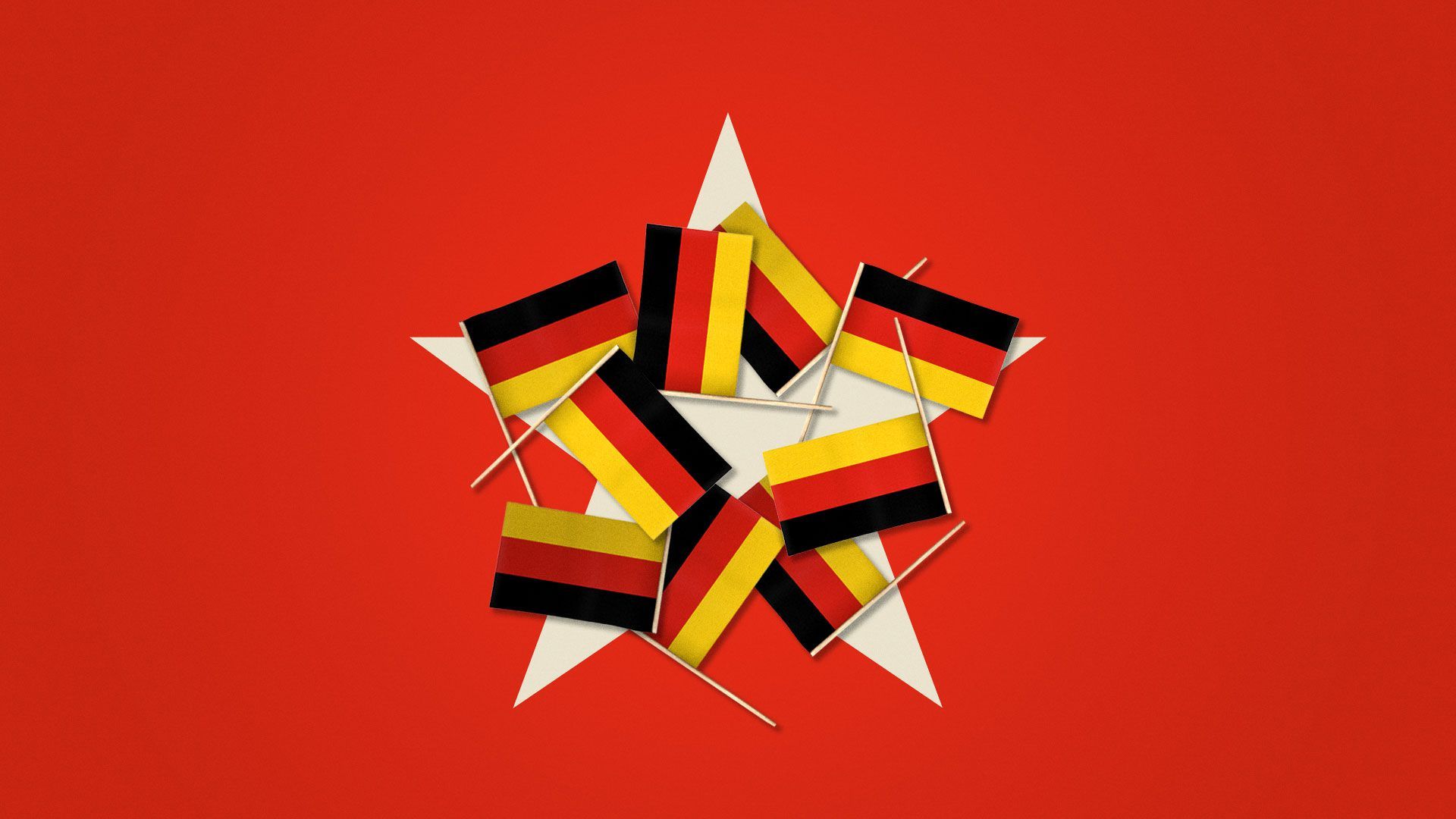Exclusive: Top German official hushed up report on China’s influence
Add Axios as your preferred source to
see more of our stories on Google.

Illustration: Eniola Odetunde/Axios
A high-ranking German official suppressed a sensitive intelligence report in 2018 on China’s growing influence in Germany out of fear it would damage business ties with China, Axios has learned.
Why it matters: Business interests have long shaped Germany’s relationship with China, to the detriment of human rights concerns and even national security.
Details: The highly sensitive report, completed in 2018, examined the Chinese government’s attempts to influence every level of German government, society and business, according to two former U.S. intelligence officials.
- It cast a particularly harsh light on the intimate ties between German business and the Chinese government.
- But before it could be widely disseminated within the German government, as had been intended, a high-ranking official intervened.
- German Chancellor Angela Merkel also saw the report, but few others did, said one official.
What they're saying: "As a matter of principle, the German government does not comment on matters concerning intelligence findings or activities of the intelligence services," a federal government spokesperson told Axios.
- The Federal Intelligence Service, Germany’s foreign intelligence agency, did not respond to a request for comment.
The big picture: German policy toward China has traditionally been driven by economic factors.
- “Germany depends on exports to a high degree, and that gives business a large influence. Business representatives talk to the government and are used to being listened to,” said Volker Stanzel, a former German ambassador to China, in an interview with Axios.
- “The Chinese Communist Party succeeded in globalizing its economy because it was able to join itself to foreign business interests,” said Stanzel.
How it works: Those business interests have tended to discourage their home governments from policies seen as harmful to economic ties with China.
- But Beijing has increasingly fused trade with politics, threatening punitive economic measures against companies and governments that criticize China’s human rights record, deny market access to Chinese companies like Huawei, or express support for Taiwan.
- German business interests, as well as the country’s top economics official Peter Altmaier, have thus tended to downplay China’s growing human rights violations and security challenges.
- A prominent example: German auto giant Volkswagen operates a factory in Urumqi, the regional capital of Xinjiang, where the Chinese government has detained more than a million ethnic minorities in mass internment camps. Volkswagen CEO Herbert Diess attracted fierce criticism for his claim in April 2019 that he was “not aware” of the camps.
The result: “There has been a lot of self-censorship in Germany with regard to China,” said Noah Barkin, an expert on Europe-China relations at the Rhodium Group. “Merkel’s approach has been to criticize China behind closed doors, rather than in public.”
But things are starting to change in Germany and around Europe amid growing global scrutiny over China’s economic practices and human rights abuses.
- On a recent five-nation tour of Europe, Chinese Foreign Minister Wang Yi was assailed with pointed questions about China’s crackdown in Hong Kong, its mass internment camps, and concerns about Chinese telecom giant Huawei.
- Merkel’s trade-first approach to China is meeting resistance, and she may well be replaced next year by a more hawkish chancellor.
- “Germany has traditionally viewed China through an economic prism, not a security prism. That has really begun to change this year,” said Barkin. “Germans are coming to the realization that they need to establish red lines, that they need to push China more forcefully, and they need to emphasize human rights.”
Between the lines: The 2018 report thus landed at a crucial time for Germany’s relationship with China — but before many powerful players were prepared to abandon their economics-first approach to the relationship.
What to watch: Germany has often set the tone for the EU. As Berlin begins to become more hawkish on China, so may the EU.
- In September, European Union President Ursula von der Leyen announced she will push for a European Magnitsky Act, a sanctions regime modeled on the U.S. framework intended to punish governments and officials who violate human rights.
